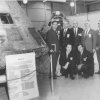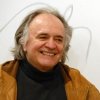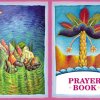The “Serbo 7” Apollo Spacecraft Launch Team was comprised of Milojko “Mike” Vucelic (Director, Systems Engineering) of Garesnica, Slavonija, Danilo Bojic (Engineer, Stress Analysis) of Lipovo near Kolasin, Paul Duich (Engineer, Data Analysis) of Centerville, Iowa whose family emigrated from Mrkopolje in Lika, Milos Surbatovich (Mechanical Engineer, Docking Systems) of Niksic, Peter Galovich (Engineer, Systems Design Hudson) of Wyoming whose family emigrated from Lika, Slavoljub “Sam” Vuich (Engineer, Electronics Systems RDT&E) of Fenj in Banat, and David Vuich (Program-Project Management) of Midland, Pennsylvania, whose family hailed from Okucani, Slavonija.
Mr. Vuich is the last living member of the “Serbo 7.” He will be travelling to Belgrade, in the latter half of July, where over the course of several days he will speak to both the public and experts in Serbia about the contributions of American-Serbian scientists, engineers, and management executives to the development of the Apollo space program.
Mr. Vuich is a lifelong member of the Serbian Orthodox Church. Starting in his town of birth, Midland, PA where he served as an altar boy in the church, Mr. Vuich treasures his Orthodox faith and Serbian heritage to this day. The Serbian Orthodox Church of St. Luke in Washington, D.C. is proud to have him as one of our distinguished parishioners.
As we join in the celebration of the 50th anniversary of the Apollo monumental achievement in carrying out the first lunar landing, we wish Mr. Vuich many more fruitful years! To the other members of the Serbian Apollo team, may God rest their souls and may their memory be eternal!
Source: Eastern American Diocese of the Serbian Orthodox Church





